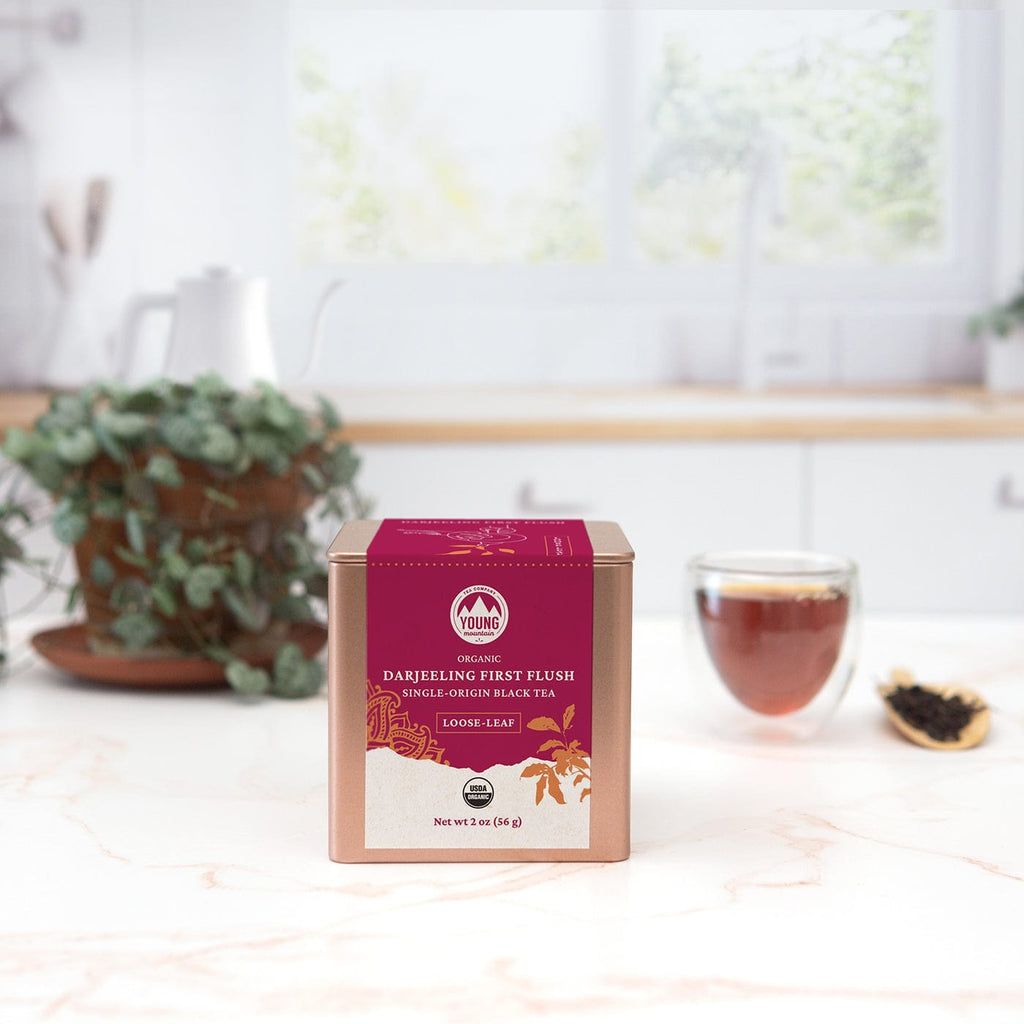
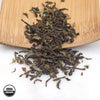
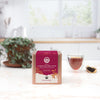
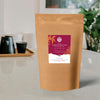
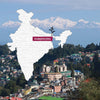
$30.99
Taste: Juicy grape & crushed cardamom
Origin: Darjeeling, Northeastern Indian Himalayas
Tea Maker: Makaibari Estate
Infusion Suggestions:
Steep 1 1.5 tsp | 8 oz | 180° F | 2.5 min
Steep 2 8 oz | 185° F | 3 min
Certifications: USDA Organic, Biodynamic Certified
Contains Caffeine
Darjeeling First Flush is an explosively floral and fruity tea made on Darjeeling's legendary Makaibari Estate, the world’s first certified biodynamic tea garden. The flavors of bursting grapes sing through this light, cheerful black tea.
Tasting Notes: The Darjeeling First Flush Tea is one of the most prized teas in the world. A candy-sweet floral aroma erupts out of the cup, and the tea’s taste is both effervescent and layered. The best versions of this tea have sublimely light top notes of cardamom and a heavy, fresh body marked by notes of kumquat and Darjeeling’s legendary muscat grape. The finish is round and smooth, although watch out, because this tea is easy to oversteep. The spring freshness that makes Darjeeling First Flush so vibrant is also quick to fade unless the tea is well stored, so be sure to use good airtight, non-transparent storage for this tea. Or better yet, drink it fast while it's at its freshest and eagerly wait for next year to repeat the journey. Darjeeling First Flush has a truly unique flavor, although its short oxidization time make it reminiscent of lightly oxidized Taiwanese oolongs or high-end silver needle teas from China.
Production: Darjeeling First Flush Tea is harvested from March through April and only the newest, most tender parts of the plant are plucked. During the spring, Darjeeling tea makers are in the processing facility around-the-clock because the minute the tea leaf is harvested from the bush, it’s a race against time to bring out the leaf’s best qualities and seal them with heat before they disappear. To pull that off, the teas are withered for a long time, rolled, and then undergo an uncommonly quick oxidization before being dried to preserve and finish the tea-making process. The ultra short oxidization, which often happens in the middle of the night or very early morning, gives the tea its greenish color and fresh taste.
Region: Running along Nepal’s eastern border, the mountainous area of Darjeeling is a confluence of varied ecologies and cultures. The region’s sharp ascent from the plains of West Bengal into the towering Himalayas creates the ideal conditions for tea to flourish. As rain clouds heavy with water from the Bay of Bengal collide into the mountains, the tea bushes receive intense bursts of rainfall followed by strong, unfiltered sunlight. These heavy rains are actually what gives the region its name; “Darjeeling” means “Land of the Rolling Thunder” in Tibetan. Recognizing the potential for high elevation specialty teas, Darjeeling tea makers have focused on quality since they began crafting teas there in the 1850s and have built a tea tradition that fetches some of the highest prices in the world. Darjeeling is also a melting pot of South Asian ethnicities, home to Tibetans, Nepali, and Indians. Under colonialism, the mild mountain temperatures made Darjeeling a perfect retreat for British soldiers, which is why the town was originally built. Today, in the shadows of Mt. Everest and Mt. Kanchenjunga, the world’s third highest peak, Darjeeling remains a destination for tea lovers and trekkers alike. Read our blog about this region here.
Tea Makers: The Makaibari Estate has led the way in progressive ecological and social practices for decades. Under the leadership of Rajah Banerjee, Makaibari evolved from a famed tea garden into a center for agricultural innovation; in his tenure, the garden became the world’s first certified organic, first certified biodynamic, and first certified fair trade tea estate. The communities that live in the garden even own a small share of Makaibari. One such community member is Maya Devi, Darjeeling’s first female supervisor of tea pluckers. From her kitchen table, she proudly tells the story of her shattering through the glass ceiling. You can eat at her home as part of Darjeeling’s first homestay program where guests can stay with families of tea pluckers.
Impact: Through biodynamic and permaculture farming practices, the ecological diversity of Makaibari makes it one of the healthiest and most resilient tea gardens in Darjeeling. The abundance of plant and animal species create healthy soils, disease resistance in plants, and a stratified root structure that retains water and minimizes landslides. Makaibari has raised the sustainability bar for many other tea estates in Darjeeling and beyond.
Packaging: Our commitment to sustainability means we offer our teas in several types of packaging:
